If the best solid state drives (SSDs) can’t meet the need for ultra-fast storage, it might be worth considering trying HighPoint’s latest RocketAIC card. This enterprise-class PCIe 4.0 add-in card (AIC) is designed for reliability and longevity, according to the manufacturer. The RocketAIC is offered with up to 122 TB of storage density and claimed read and write performance of up to 54 GB/s and 36 GB/s, respectively. The RocketAIC communicates with the system via a standard PCIe 4.0 x16 expansion slot. Unlike other PCIe 4.0 AIC solutions like the Sabrent Apex X21 Destroyer or the ASRock Blazing Quad M.2 Card, the RocketAIC apparently does not use M.2 SSDs. Instead, HighPoint’s AIC uses the Solidigm D7-P5520 E1.S, a 114-layer TLC hard drive. So far, so good.
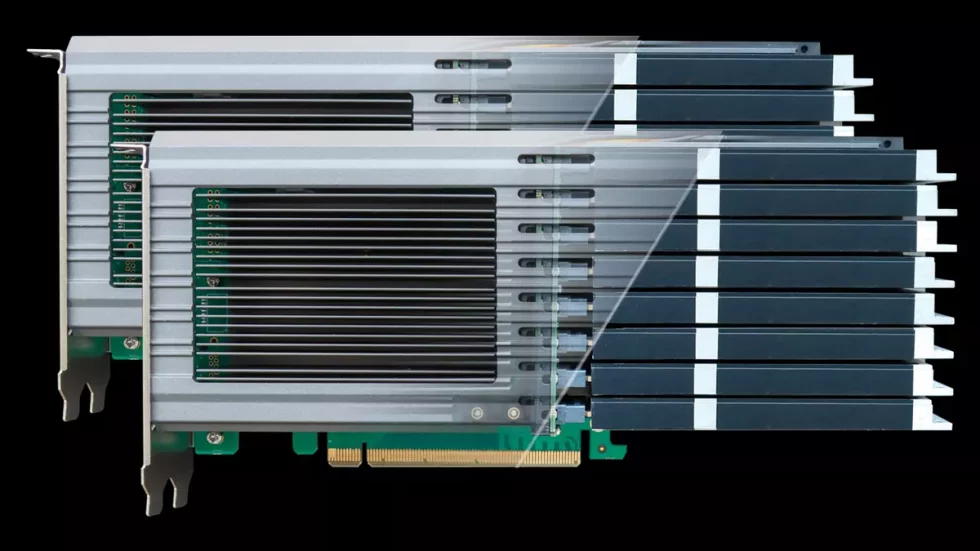
Eight E1.S NVMe ports are available for this, which could supposedly be used to connect up to eight E.1S drives. Since eight SSDs might not be powered only via the expansion slot, a standard 6-pin PCIe power connector is apparently available for an external power supply. An unnamed Broadcom PCIe 4.0 switch is said to ensure that each E.1S SSD has its own PCIe 4.0 x4 interface.
The AIC features a tool-free design that makes it easy to access the E.1S ports with the flip of a switch. HighPoint has apparently developed a robust cooling solution to keep the E.1S SSDs cool, as heat is said to always be the biggest enemy of AIC setups. The aluminum enclosure is said to have integrated heatsinks with appropriate vents for heat dissipation, and two small, quiet fans on the back of the RocketAIC are said to circulate air to cool the SSDs.
The RocketAIC cards are available in two capacities, 30.72 TB and 61.44 TB. However, it is possible to combine two drives in a dual-drive setup (cross-sync) to achieve a storage capacity of 122.88 TB. Performance remains comparable for both capacities. However, the 61.44 TB model offers read and write speeds of up to 27 GB/s and 18 GB/s, respectively. However, in a two-drive configuration, performance increases to up to 54 GB/s read and 36 GB/s write.
HighPoint RocketAIC Specifications
| RA7749EM-S30T7-01 | RA7749EM-S61T4-02 | RA7749EN-S61T4-01 | RA7749EN-S122T-02 | |
|---|---|---|---|---|
| Storage | 30.72 TB | 61.44 TB | 61.44 TB | 122.88 TB |
| Read performance (4 x PCIe 4.0 x8) | 14 GB/s | 14 GB/s | 27 GB/s | 27 GB/s |
| Write Performance (4 x PCIe 4.0 x8) | 10 GB/s | 10 GB/s | 19 GB/s | 19 GB/s |
| Read Performance (2 x PCIe 4.0 x16) | 26 GB/s | 27 GB/s | 53 GB/s | 54 GB/s |
| Write Performance (2 x PCIe 4.0 x16) | 19 GB/s | 18 GB/s | 38 GB/s | 36 GB/s |
| MSRP | €4569,84 | €9139,69 | ? | ? |
The product comes in a standard form factor of full height, full length and double width and has dimensions of 7.68 x 4.37 x 0.85 inches (195.07 x 111 x 21.59 mm). Power consumption for the 30.72-TB drive is about 137.28 W, while the 61.44-TB model consumes 161.298 W. For a two-drive configuration, the power consumption would simply double. The RocketAIC card supports three RAID arrays, namely RAID 0, RAID 1 and RAID 10, so users can choose between highest performance, additional security or a combination of both options. One potential drawback is that only data RAID and no boot RAID is supported, which may be a deal-breaker for some.
The RocketAIC are compatible with macOS, Linux, and Windows operating systems, though care must be taken to select the correct part number. The RA7749EM version with the “EM” suffix is designed for macOS, while the RA7749EW version with the “EW” suffix is designed for Windows and Linux systems. Regardless of OS support, the drives have the same pricing, so users don’t have to worry about one drive being more expensive than the other depending on which OS they use.
The RocketAIC comes with a three-year warranty, regardless of capacity or configuration. It is noticeable that this warranty is relatively short compared to similar products, especially considering that such a RocketAIC is marketed as a workstation product with a high price tag. For comparison, Solidigm offers a five-year warranty for its D7-P5520 SSD. Load limits vary depending on the RocketAIC version. In a single-drive configuration, the load limits for the 30.72-TB and 61.44-TB drives are 7 PBW and 14 PBW, respectively. In a two-drive configuration, the load limits for the 61.44-TB and 122.88-TB versions are 56 PBW and 112 PBW, respectively.
The RocketAIC is aimed at the professional and workstation markets and is priced accordingly. The 30.72 TB drive is available for the equivalent of 4569.84 EURO, while the 61.44 TB drive costs 9139.69 EURO. Pricing for the dual-drive configurations is currently unavailable, but is expected to be double that of the single drives, as they combine two separate AICs into one package.
Source: Tom’sHARDWARE



















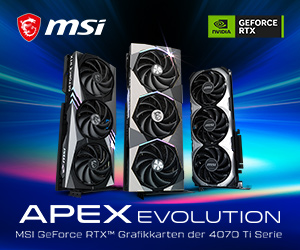

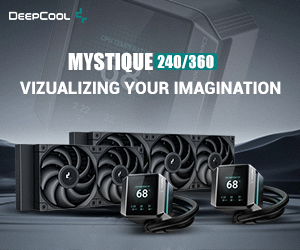
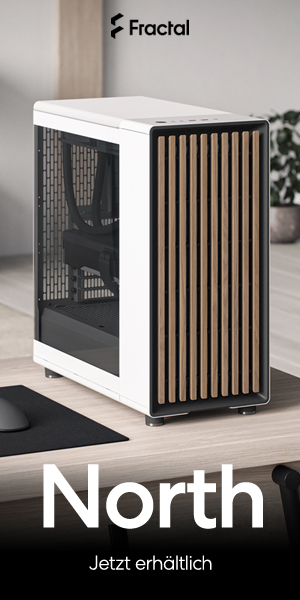

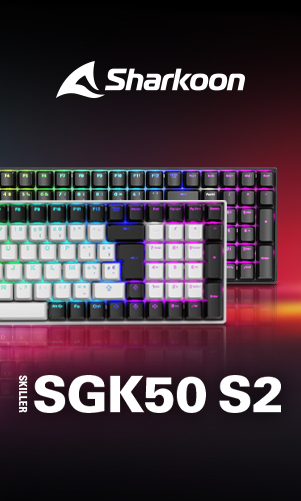
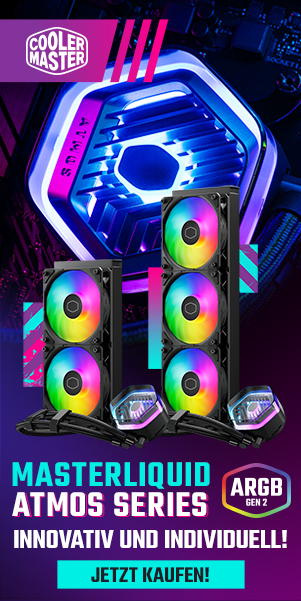



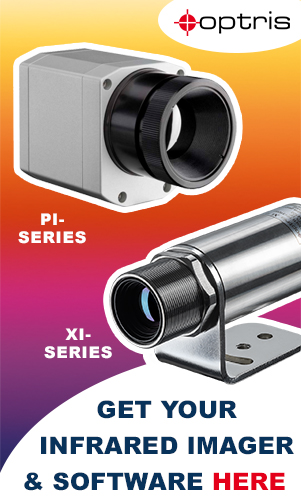
4 Antworten
Kommentar
Lade neue Kommentare
Veteran
Urgestein
Mitglied
Urgestein
Alle Kommentare lesen unter igor´sLAB Community →